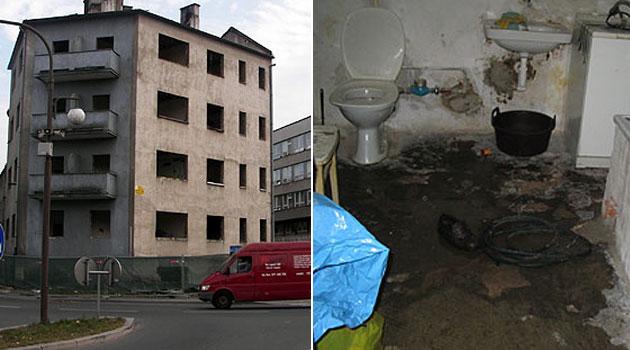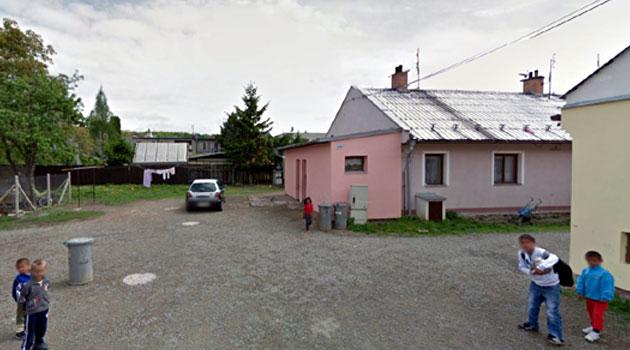Czech Constitutional Court to review town's forced relocation of Romani residents

The almost decade-long dispute between the Czech town of Vsetín and the Romani residents whom the town evicted and then forcibly relocated into villages entirely outside of the Zlín Region will now be reviewed by the Czech Constitutional Court. The town of Vsetín has filed a constitutional complaint in the matter.
No verdict regarding compensation to the Romani plaintiffs has yet been handed down by the lower courts. The town does not like the way the High Court in Olomouc is proceeding in the case, as it has repeatedly overturned the decisions of the Regional Court in Ostrava in the matter and most recently instructed that the judge presiding over the case be changed.
Vsetín first responded to the High Court’s decisions by making a failed appeal to the Czech Supreme Court. The town’s filing of a constitutional complaint is a matter of record in the court database, which is open to the public.
Constitutional Court spokesperson Miroslava Sedláčková has confirmed the filing. The Romani plaintffs are of the opinion that the town violated their fundamental rights by forcibly relocating them.
That lawsuit has been repeatedly rejected by the Regional Court. According to the High Court, however, the actual aim of the town relocating the Romani families was not to provide them with substitute accommodation, but to force other municipalities to bear the burden of the problem.
The High Court has asked for more thorough evidence regarding the gravity of the damages caused to those who were relocated. Vsetín evicted the Romani tenants from a dilapidated apartment building in the center of town in 2006.
The town hall bought old single-family houses in the Jeseniky and Prostějov districts through a real estate office and forced some of the evictees to sign contracts obliging them to buy the properties from the town over the course of 20 years. Another 40 Romani families were relocated to the outskirts and housed in units made out of sheet metal containers.
Some of the families who were forcibly relocated into villages in the Jeseniky and Prostějov districts found that the single-family houses were falling apart. Three families who had failed to pay rent to the town were moved into that type of old, single-family house in the villages of Stará Červená Voda, Vidnava and Vlčice in Jesenicky district.
The Romani evictees are allegedly not paying interest on the loans the town forced them to assume and repay. Mayor Jiří Čunek later forcibly relocated other Romani residents from Vsetín into the villages of Čechy pod Kosířem and Dřevnovice in the Prostějov district.
The two families evicted into Prostějov district had a total of 26 members. The case was investigated at the time by the police, the state prosecutor, and by former Czech ombudsman Otakar Motejl.
Police found that Čunek had not broken the law by evicting the tenants and relocating them, but Motejl found the town hall had erred and violated the Romani families’ right to respect for their private and family life. The Human Rights Committee of the Czech Senate then endorsed Motejl’s findings.
The Romani evictees described how they were forcibly relocated from Vsetín to the media. “They haunted us with the prediction that we would end up on the street and our children would be sent to children’s homes,” Romani evictee Jolana Tulejová told news server iDNES.cz in 2006 when asked to describe the pressure she experienced from the town.
Employees of the local authority forced the Romani evictees to sign papers without reading them that obliged them to purchase specific single-family homes. The evictees were not given the option to freely choose where they would move with their families.
The state of the single-family homes was very poor, as was confirmed by one of the original sellers, who also criticized the town for hiring intermediaries to purchase the real estate. “If I had known it was just going to be resold, I never would have signed that contract. It’s an old, small building that needs repairs. Eleven people wouldn’t even fit inside it,” property owner Olga Juklová told the Czech daily Mf DNES at the time.
That particular single-family home was sold through the Prostějov office of Real Spektrum for CZK 320 000 (EUR 12 000), but Mr and Mrs Tulej are obligated to pay the town CZK 460 000 (EUR 17 000) for it. The Romani families are seeking compensation from the town in the amount of CZK 5.2 million (EUR 192 000).
